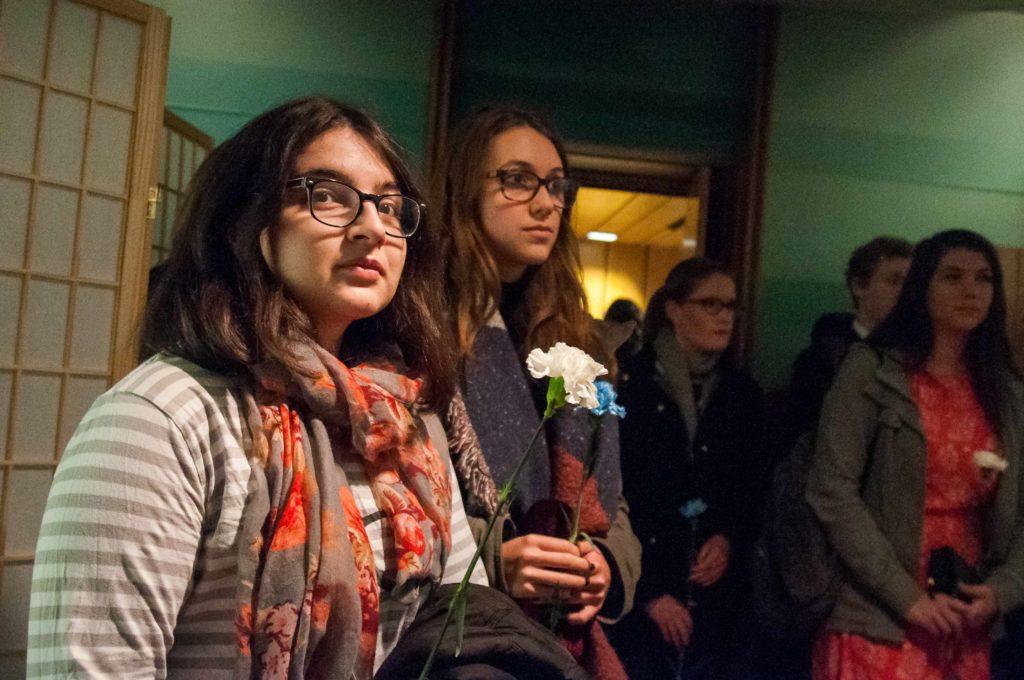By Rachel Morford, news correspondent
Students gathered and crying boomed forth in the dimly lit, densely packed Sacred Space. The tears rise for those lost. In this moment, everyone stood in solidarity for those in France. Flowers of blue, white and red—not symbolizing the American flag, but another—are grasped by many of those with sorrow on their faces.
A normally cheery face was solemn. Alexander Kern, executive director of the Center for Spirituality, Dialogue and Service (CSDS), stood at the podium to the right of that table and the people to move in so the rather small room can accommodate everyone paying their respects.
Northeastern’s Sacred Space was filled to capacity on Monday as students, faculty and staff came together to honor the hundreds of lives lost in Thursday and Friday’s terrorist attacks in Baghdad, Beirut and Paris.
Upon entering, attendees were given carnations of red, white and blue, colors chosen in respectof the French national flag. Paris was hit the hardest in Friday’s attacks, suffering 129 fatalities. Islamist terrorist group ISIS has since claimed responsibility for the attacks. Guests were encouraged to keep these flowers close throughout the ceremony.
Kern provided opening remarks to the crowd of over 100 people.
“Our hearts and hands reach out in support for the victims, the survivors and all who live in the shadow of fear,” he said. “It is in times like these that we draw comfort and strength from the deep wells of our spiritual and humanist traditions of healing and hope.”
The ceremony drew upon a variety of religious texts, including a reading from the Quran, the recitation of a Christian prayer and the reading of a poem written by a Buddhist monk living in France.
“There is no difference greater than the oneness of our shared humanity,” the Rev. Maryhelen Gunn, humanist and Universalist Unitarian spiritual advisor, said.
After Gunn called for a second moment of silence, President Joseph E. Aoun was invited to address the audience.
Aoun spoke of his experience as a Lebanese national and French citizen. Raised in Beirut, Aoun grew up speaking French, living through the Lebanese Civil War and eventually attending the University of Paris.
Calling the attacks senseless and unacceptable, Aoun emphasized that the anger felt must be turned into action.
In the next room, attendees signed cards to be sent to the survivors.
“It was heavy…heavy, heavy, heavy,” Fulton Hou, a senior civil engineering major, said. “When senseless things happen, it can be hard to wrap your head around. But the term ‘light over darkness’ stood out to me – I found the French prayer very beautiful.”
Sarah Elbakri, a sophomore civil engineering student and president of the Northeastern Islamic Society, was similarly affected.
“It was absolutely beautiful,” she said. “I was very moved by everyone’s solidarity.”
Photo by Scotty Schenck









